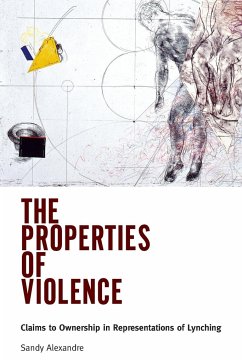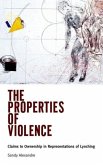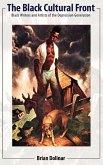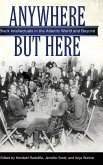The Properties of Violence focuses on two connected issues: representations of lynching in late-nineteenth and twentieth-century American photographs, poetry, and fiction; and the effects of those representations. Alexandre compellingly shows how putting representations of lynching in dialogue with the history of lynching uncovers the profound investment of African American literature--as an enterprise that continually seeks to create conceptual spaces for the disenfranchised culture it represents--in matters of property and territory. Through studies ranging from lynching photographs to Toni Morrison's Pulitzer Prize-winning novel, Beloved, the book demonstrates how representations of lynching demand that we engage and discuss various forms of possession and dispossession. The multiple meanings of the word "representation" are familiar to literary critics, but Alexandre's book insists that its other key term, "effects," also needs to be understood in both of its primary senses. On the one hand, it indicates the social and cultural repercussions of how lynching was portrayed, namely, what effects its representations had. On the other hand, the word signals, too, the possessions or what we might call the personal effects conjured up by these representations. These possessions were not only material--as for example property in land or the things one owned. The effects of representation also included diverse, less tangible but no less real possessions shared by individuals and groups: the aura of a lynching site, the ideological construction of white womanhood, or the seemingly default capacity of lynching iconography to encapsulate the history of ostensibly all forms of violence against black people.
Hinweis: Dieser Artikel kann nur an eine deutsche Lieferadresse ausgeliefert werden.
Hinweis: Dieser Artikel kann nur an eine deutsche Lieferadresse ausgeliefert werden.









